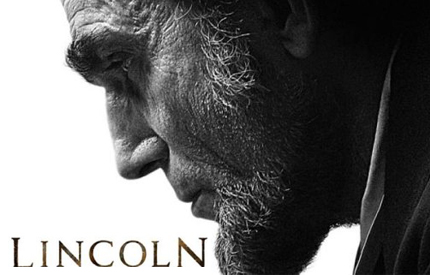Lincoln
Date: 23/01/2013
Movie Review

By Leigh Forgie
If ever there was a way of guaranteeing an Oscar nomination, it’s combining Spielberg’s love affair with historical cinema and Daniel Day-Lewis’ no holds barred method approach to acting. Set against the backdrop of the American Civil War, Lincoln tells the story of the America’s sixteenth President’s and his crusade to pass the thirteenth amendment through the House of Representatives and end the raging Civil War with the Southern states.
This amendment would see the emancipation of the country’s slave population, an act that isn’t exactly welcomed by either the opposing Democrats or indeed members of Lincoln’s own Republican Party. In order to ensure victory, Lincoln must rely on his war powers and bag of sneaky lawyer tricks to not only free the slaves, but also ensure peace between his Union states and the rebellious south.
A certain degree of prior knowledge on this era of American history is expected, as some scenes are as heavy as the burden Lincoln bears throughout the course of the film. The dialogue is dripping with nineteenth century lingo and complex political chatter that to the untrained mind could leave audiences feeling a little left behind.
Thankfully Daniel Day-Lewis’s portrayal of old Abe is one that is soft-spoken, clever and reassuring. Opposition to his decisions is often met with a humorous allegorical tale in retort. These stories not only put any hostility towards Lincoln’s policies to rest, but are also used to keep the audience engaged with the politically charged and lengthy narrative.
The plot also gives insight into Lincoln’s family values as his son Robert (Joseph Gordon-Levitt) defies the wishes of his unhinged, realist mother (Sally Field) and enlists in the U.S. Army. These scenes show a rather more honest Lincoln, as he often snaps in anger when reminded of what is at stake should this bill never see the light of day.
Outside the walls of White House, there are plenty of entertaining performances from the supporting cast. James Spader and his band of bumbling lobbyists keep the pace with some lighter, humorous scenes, as they try and turn lame duck Democrats against their more vocal peers who stand against the bill.
The standout performance however comes from Tommy Lee Jones as radical Republican Thaddeus Stevens.
As a man who shares Lincoln’s ambition to abolish slavery, he also shows disdain towards Lincoln’s devious methods, particularly as a way of forcing the South to surrender. His rabble-rousing and often witty speeches in the House of Representatives help put things in perspective as certainly some of the most memorable moments in the film.
Lincoln does come dangerously close to idolising Abraham Lincoln, despite Spielberg’s best efforts to paint an all-encompassing portrait of the man. “Honest Abe’s” underhand tactics to win votes are often juxtaposed alongside scenes where his loyal subjects hang on his every word, even if he is talking in rhetoric in order to elude the matter at hand, all to the tune of John Williams’ elevating score.
Despite being purposely crafted for an American audience just in time for the awards season, it’s hard to feel cynical about Lincoln. As he has proven before with films such as Schindler’s List and Saving Private Ryan, Spielberg can balance his attention to historical detail along with an entertaining, if not rather convoluted legislative narrative.
Directed by Steven Spielberg and starring Daniel-Day Lewis, Tommy Lee Jones, Sally Field and Joseph Gordon-Levitt.
If ever there was a way of guaranteeing an Oscar nomination, it’s combining Spielberg’s love affair with historical cinema and Daniel Day-Lewis’ no holds barred method approach to acting. Set against the backdrop of the American Civil War, Lincoln tells the story of the America’s sixteenth President’s and his crusade to pass the thirteenth amendment through the House of Representatives and end the raging Civil War with the Southern states.
This amendment would see the emancipation of the country’s slave population, an act that isn’t exactly welcomed by either the opposing Democrats or indeed members of Lincoln’s own Republican Party. In order to ensure victory, Lincoln must rely on his war powers and bag of sneaky lawyer tricks to not only free the slaves, but also ensure peace between his Union states and the rebellious south.
A certain degree of prior knowledge on this era of American history is expected, as some scenes are as heavy as the burden Lincoln bears throughout the course of the film. The dialogue is dripping with nineteenth century lingo and complex political chatter that to the untrained mind could leave audiences feeling a little left behind.
Thankfully Daniel Day-Lewis’s portrayal of old Abe is one that is soft-spoken, clever and reassuring. Opposition to his decisions is often met with a humorous allegorical tale in retort. These stories not only put any hostility towards Lincoln’s policies to rest, but are also used to keep the audience engaged with the politically charged and lengthy narrative.
The plot also gives insight into Lincoln’s family values as his son Robert (Joseph Gordon-Levitt) defies the wishes of his unhinged, realist mother (Sally Field) and enlists in the U.S. Army. These scenes show a rather more honest Lincoln, as he often snaps in anger when reminded of what is at stake should this bill never see the light of day.
Outside the walls of White House, there are plenty of entertaining performances from the supporting cast. James Spader and his band of bumbling lobbyists keep the pace with some lighter, humorous scenes, as they try and turn lame duck Democrats against their more vocal peers who stand against the bill.
The standout performance however comes from Tommy Lee Jones as radical Republican Thaddeus Stevens.
As a man who shares Lincoln’s ambition to abolish slavery, he also shows disdain towards Lincoln’s devious methods, particularly as a way of forcing the South to surrender. His rabble-rousing and often witty speeches in the House of Representatives help put things in perspective as certainly some of the most memorable moments in the film.
Lincoln does come dangerously close to idolising Abraham Lincoln, despite Spielberg’s best efforts to paint an all-encompassing portrait of the man. “Honest Abe’s” underhand tactics to win votes are often juxtaposed alongside scenes where his loyal subjects hang on his every word, even if he is talking in rhetoric in order to elude the matter at hand, all to the tune of John Williams’ elevating score.
Despite being purposely crafted for an American audience just in time for the awards season, it’s hard to feel cynical about Lincoln. As he has proven before with films such as Schindler’s List and Saving Private Ryan, Spielberg can balance his attention to historical detail along with an entertaining, if not rather convoluted legislative narrative.
Directed by Steven Spielberg and starring Daniel-Day Lewis, Tommy Lee Jones, Sally Field and Joseph Gordon-Levitt.
More info : http://www.moviehouse.co.uk/





































